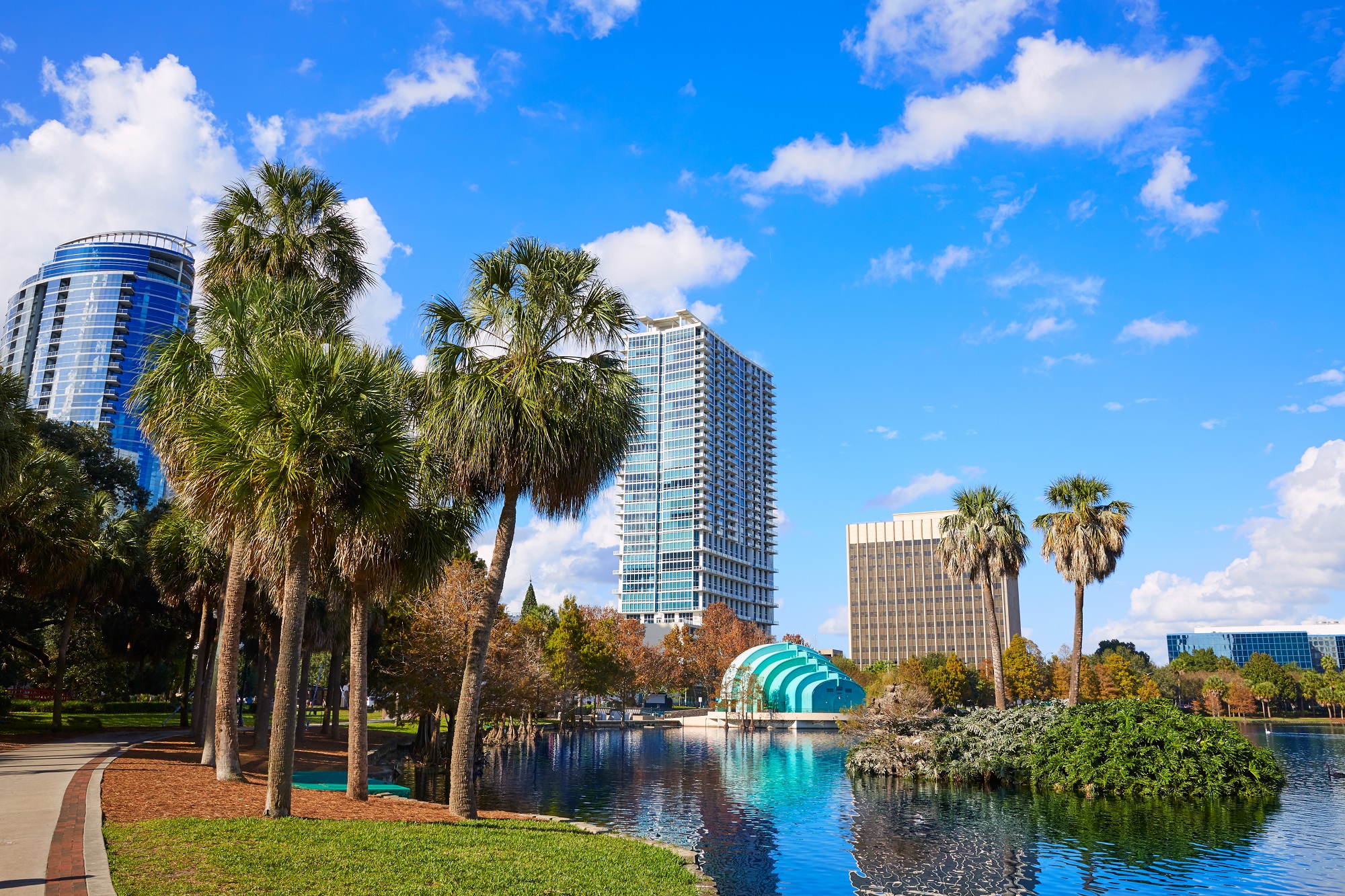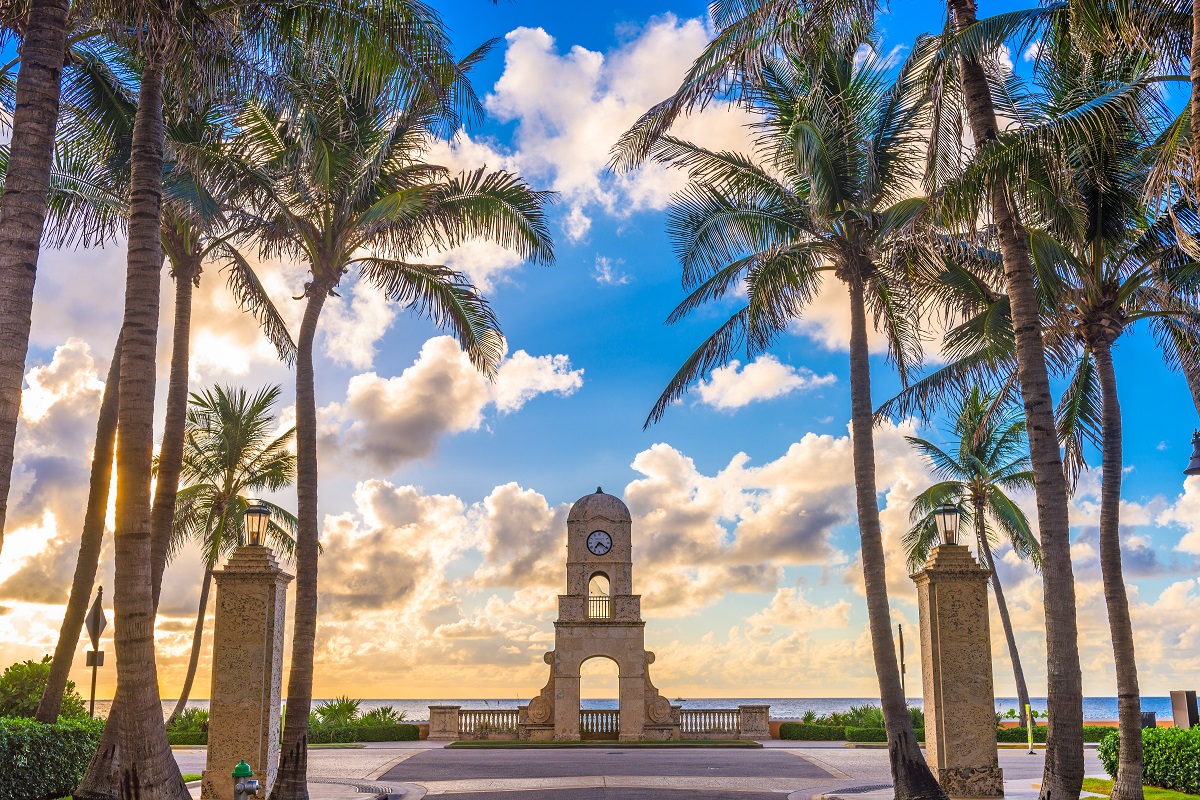
What Is the Cost of Living in Orlando?

Between the popular attractions, theme parks, the beautiful lakes, and the year-round sunshine, Orlando, Florida, is one of the best cities to live on the east coast. While Florida as a whole tends to offer pretty affordable prices, Orlando in particular is a major metropolitan area with a surprisingly low cost of living.
Of course, it’s important to understand what variables factor into this affordability. Before you move, you have to analyze the pros and cons of living in Orlando, and one way to determine that is to know how much it would cost to live there. This article explores the cost of living in Orlando, Florida, in the following categories:
- Overall cost of living
- Housing
- Utilities
- Transportation
- Food
- Entertainment
Let’s get started!
Overall cost of living in Orlando, FL
First and foremost, let’s talk numbers. The cost of living in every city in the U.S. can be calculated based on a score compared to 100. While 100 is the average cost of living in the U.S. as a whole, some cities may rank higher or lower depending on their unique prices.
Orlando, Florida, earns a score of 104.1 on the cost of living index. While this may seem high, it’s actually a fairly reasonable score for a major metropolitan area. Keep in mind that the average cost of living in the state of Florida is only slightly lower, at 102.8. It’s also crucial to understand that many other U.S. cities earn much higher scores than Orlando, such as:
| U.S. City | Cost of Living Index Score |
| San Francisco | 269.3 |
| New York City | 187.2 |
| Los Angeles | 173.3 |
| Austin | 119.3 |
| Atlanta | 107.5 |
| Chicago | 106.9 |
Furthermore, several major cities in Florida earn a higher score on the cost of living index than Orlando does. Most notably:
| FL City | Cost of Living Index Score |
| Key West | 154.8 |
| Miami | 121.1 |
| Fort Lauderdale | 117.9 |
| Naples | 111.9 |
| West Palm Beach | 108.1 |
It’s also important to note that Orlando does rank slightly higher than several other nearby cities in Florida, including:
| FL City | Cost of Living Index Score |
| Tampa | 100.1 |
| Tallahassee | 93.8 |
| Jacksonville | 93.5 |
| Panama City | 92.3 |
While these scores in other cities can help you get a sense of the cheaper and more expensive areas of Florida, they don’t tell you much about the specific costs that contribute to each score.
Fortunately, this guide has all the information needed to break down the cost of living in Orlando, FL.
Up first? The cost of housing.
Orlando cost of living: Housing
Housing is an essential factor to consider before moving to a new city. After all, whether you choose to buy or rent your home, you need a place to live before you can begin to calculate smaller costs.
Fortunately, Orlando has a fairly affordable housing market. The median home price in this area is $294,400—only slightly higher than the national average of $291,700. It’s important to keep in mind that the national average includes the country’s rural areas, where housing is far cheaper. So, essentially, you’re getting a home in a major city for the price of one in a small town. The statewide median home value in Florida is roughly the same, with a price of $294,900.
Now that we’ve discussed housing costs, let’s move on to the other realm of housing: renters. As of 2019, approximately two-thirds of Orlando residents rent their homes rather than own them.
Fortunately, rent prices in Orlando aren’t too high compared to national averages. Here’s what you can expect to pay to rent different apartment sizes in this area:
| Apartment Size | Monthly Rent in Orlando | National Average Rent |
| Studio | $1,094/mo | $949/mo |
| One-bedroom | $1,175/mo | $1,048/mo |
| Two-bedroom | $1,351/mo | $1,278/mo |
| Three-bedroom | $1,736/mo | $1,681/mo |
| Four-bedroom | $2,100/mo | $1,950/mo |
This cost can also fluctuate depending on which Orlando neighborhood you’re looking to move to, so be sure to do some research ahead of time so you can get an accurate idea of what’s reasonable for your neighborhood.
Orlando cost of living: Utilities
Next, we’ll move on to the costs that keep your house habitable—utilities. As an Orlando resident, your monthly utility cost will consist of the following bills:
- Heating and cooling
- Electricity
- Wi-Fi
- Garbage
- Water
According to Numbeo, the average utility bill in Orlando, FL, is approximately $179.92 per month. This is a bit higher than the national average of $171.66—which may be partly due to the need for year-round air conditioning in Florida.
Internet is also slightly more expensive in Orlando, with an average monthly cost of $71.79, compared to the national average of $64 per month. These costs ultimately earn Orlando a utilities score of 102.3 on the cost of living index—slightly higher than the statewide average of 101.3.
Orlando cost of living: Transportation
In terms of transportation, Orlando earns a higher than average score of 110.1. This is mostly because a large majority of residents rely on cars as their primary means of transportation—and owning a car in Florida can be a little expensive. Plus, traffic can get a little tough in Orlando due to the many tourists who flock to the area.
Here’s what you need to know:
- Registration: Registering your vehicle will cost a pretty penny each year, but Orlando registration costs are too bad compared to other parts of the country. Locals can register a car up to 2,499 pounds for only $28 per year. For a two-year registration, the cost will increase to $56.
- Insurance: In a city with so many highways, auto insurance won’t be cheap. While the cheapest plans cost around $825 per year, standard coverage in Orlando will cost an average annual price of $1,862. This is quite a bit higher than the national average of $1,674 per year.
- Gasoline: Gas in Florida is fairly cheap compared to other states in the U.S. According to the state of Florida, the cheapest gallon of gas currently available is $2.79. This is significantly lower than the national average of $3.24.
That being said, Orlando is ranked as the second-best city in Florida in terms of public transportation. Locals can save money by hopping on the Lynx public bus system or the commuter SunRail for a more affordable option.
Orlando cost of living: Food
Food and groceries are other crucial factors in crafting your monthly budget. Depending on where you live, the prices at both restaurants and grocery stores can vary.
According to Numbeo, the average inexpensive meal for one person costs about $15. Compare that to a three-course meal for two at a mid-range restaurant, which will run you approximately $50.
That being said, most residents tend to cook their own meals on a daily basis. Single individuals tend to spend about $3,177 on food per year—or $264.75 per month. This is quite a bit lower than the national average of $387 per month.
Orlando cost of living: Entertainment
If there’s one thing Orlando is known for, it’s entertainment, from theme parks like Disney World, Universal Studios, the Wizarding World of Harry Potter, and SeaWorld. Not only that, but locals can enjoy everything Orlando has to offer for a fraction of the price of what tourists pay. For example:
- Walt Disney World: Florida residents can get 30% off three-day Disney passes and 40% off four-day Disney passes at this theme park.
- Universal Studios: Florida residents can get up to $65 off multi-day Universal Studios tickets when they order them online.
- SeaWorld: SeaWorld often offers special discounts for Florida residents, but it’s important to check the website frequently for these theme park deals.
In addition to these hotspot attractions, here are some other facts and figures Orlando residents should know about the entertainment scene:
- Movies: A movie ticket costs $12, not including snacks and drinks.
- Drinks: A single cocktail at a club in downtown Orlando will cost you $14, but more laid-back bars may offer cheaper options.
- Gym: A gym membership will cost you an average of $32 per month.
One other thing to note is that Florida residents don’t have to pay a state income tax, which means that’s a bit more money that can stay in your pocket at the end of the day. That reduced tax expense can be put toward your monthly rent (or an extra trip to Disney!).
Use Landing to find your new apartment in Orlando, FL
Moving to Orlando can be exciting, affordable, and the beginning of a new adventure—but before all that, you’ll need to find a place to stay. Navigating the real estate market in a big city can be tricky, especially when you’re far away. Fortunately, Landing is here to change that.
With Landing, it’s never been easier to find your perfect apartment in a new city. Forget the rigid contracts, hidden costs, and broker fees. Instead, Landing offers flexible leasing options, fully furnished apartments, and even pet-friendly homes. Discover your new city with ease, and get started today with Landing! Browse our furnished apartments in Orlando here.









